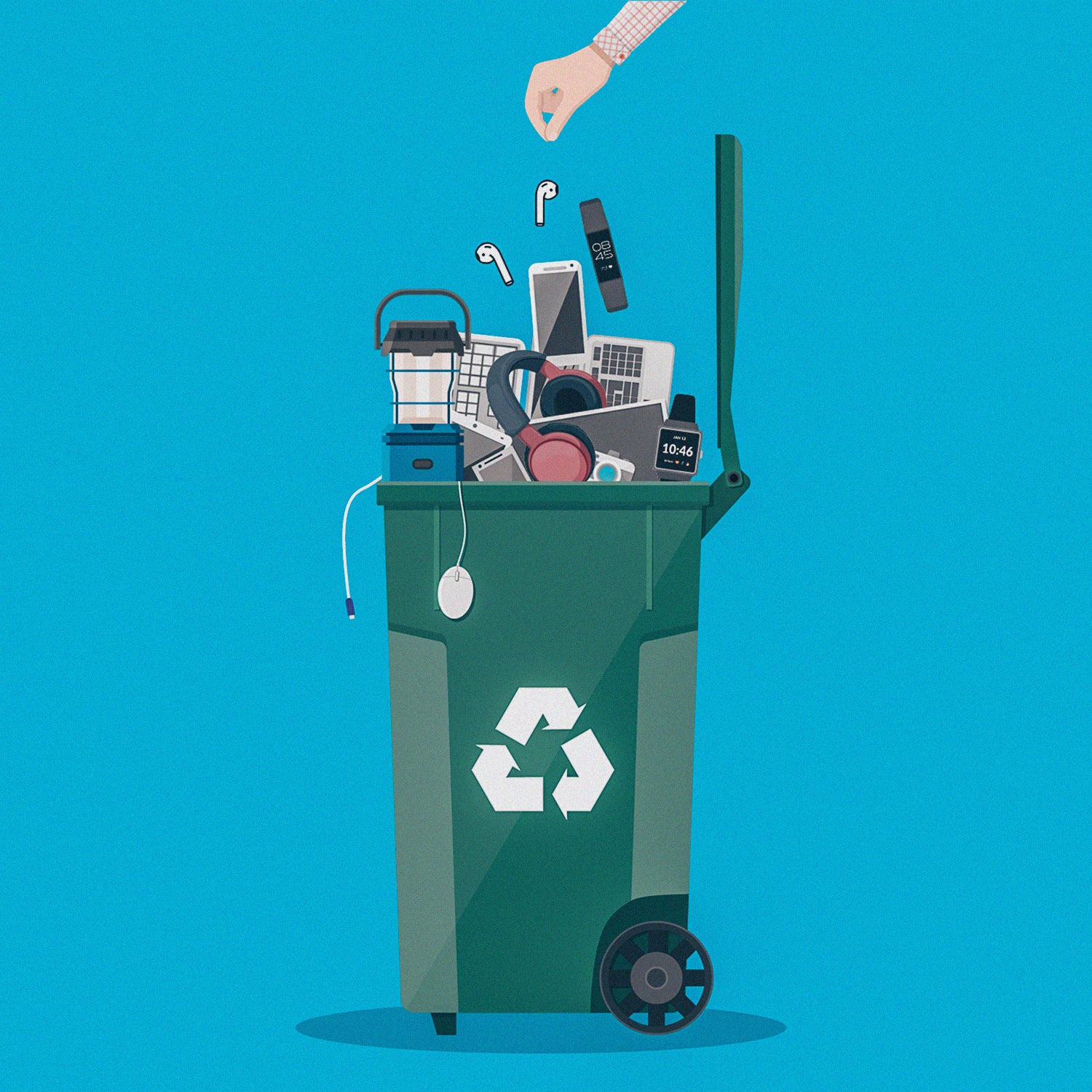Sustainable Electronics Disposal: Guarantee Compliance with R2 Certification
Sustainable Electronics Disposal: Guarantee Compliance with R2 Certification
Blog Article
Elevate Your E-Waste Administration With R2 Certification: a Comprehensive Review
One trick technique to boost e-waste administration practices is by achieving R2 qualification. By exploring the advantages and procedures associated with R2 certification, a deeper understanding of exactly how it can change e-waste administration strategies arises, shedding light on a path towards sustainability and honest disposal methods.
Significance of E-Waste Administration

When e-waste is not handled correctly, these harmful materials can permeate right into the community, creating injury to wildlife and possibly entering the food web, posturing dangers to human health. Furthermore, the incorrect disposal of e-waste adds to air pollution and greenhouse gas discharges, intensifying environment change and environmental destruction.

Advantages of R2 Accreditation

First of all, R2 qualification improves credibility by showcasing an organization's devotion to sustainable techniques. It assures consumers, partners, and stakeholders that the business sticks to strict criteria for e-waste management - r2 certification. This integrity can lead to boosted trust fund and improved connections with customers who focus on ecological responsibility
Secondly, R2 qualification helps reduce threats connected with incorrect e-waste disposal. By adhering to the strict guidelines established forth by the qualification, organizations can lessen the chance of data breaches, ecological contamination, and lawful effects. This proactive method safeguards the company's track record and minimizes possible liabilities.
Finally, R2 accreditation shows a dedication to environmental stewardship - r2 certification. By properly handling electronic waste through licensed processes, organizations contribute to the conservation of sources, decrease of contamination, and promotion of a circular economic situation. This commitment not only profits the atmosphere but likewise lines up with evolving customer expectations for sustainable organization techniques
R2 Qualification Process Introduction
Having developed the advantages of R2 qualification in advertising credibility, threat reduction, and ecological stewardship, it is necessary to currently detail the comprehensive process associated with getting this qualification. The R2 accreditation process begins with a thorough testimonial of the company's operational plans and treatments to guarantee compliance with the R2 criterion. This preliminary assessment is crucial in recognizing any type of gaps that require to be attended to before continuing additionally.
Once the company's methods align with the R2 typical demands, an independent third-party auditor conducts an on-site audit to review the application and effectiveness of these methods. This audit includes a detailed review of documents, interviews with description team, and physical assessments of centers to confirm conformity.
Complying with an effective audit, the organization obtains a certification choice based on the auditor's searchings for. If approved, the organization is provided R2 accreditation, showing its commitment to liable e-waste management. It is vital to note that preserving R2 qualification requires recurring compliance with the requirement's needs and regular audits to make certain continued adherence to ideal practices in e-waste recycling and disposal.
Secret Standards for R2 Compliance
A crucial aspect of accomplishing R2 conformity is ensuring that all electronic waste (e-waste) handling centers fulfill stringent environmental and security criteria. To follow R2 requirements, organizations have to abide by essential requirements that concentrate on responsible e-waste administration methods. These standards consist of implementing a documented environmental, health and wellness, and security monitoring system, making sure the secure handling of data-containing tools, and conducting comprehensive downstream due persistance to track the final location of e-waste products.
Moreover, R2 conformity demands the correct testing, click resources refurbishment, and recycling of digital equipment to prolong its beneficial life and decrease ecological effect. Facilities looking for R2 certification need to also focus on employee find this wellness and safety and security by providing necessary training, personal safety tools, and a secure workplace. Furthermore, maintaining detailed records of e-waste handling tasks and regularly undertaking audits by approved accrediting bodies are important components of showing recurring compliance with R2 standards.
Influences of Lasting E-Waste Practices
The implementation of lasting e-waste techniques according to R2 compliance not just makes sure environmental and safety and security requirements are met but additionally substantially impacts the total lifecycle of digital products. By sticking to R2 standards, digital waste administration processes end up being much more efficient, lowering the environmental impact of electronic products. Lasting e-waste methods facilitate the appropriate disposal of electronic parts, making sure that dangerous products are dealt with sensibly and do not wind up contaminating the atmosphere.
In addition, accepting lasting e-waste practices advertises the circular economic situation by helping with the recuperation and reuse of useful materials from digital items. This not only saves precious sources but likewise lowers the requirement for resources extraction, lessening the ecological impact of digital manufacturing. Additionally, sustainable e-waste methods can add to job production in the recycling and repair industries, cultivating economic growth while advertising ecological responsibility. In general, the fostering of lasting e-waste techniques under R2 qualification acts as a crucial step towards attaining a much more environmentally sustainable electronics sector.
Final Thought
To conclude, implementing proper e-waste management techniques is vital for ecological sustainability and resource conservation. R2 certification plays an essential role in guaranteeing responsible handling and disposal of electronic waste. By sticking to the rigorous requirements stated by R2 standards, organizations can not just lessen their ecological impact but additionally add to a much more sustainable future for generations to come.
One trick approach to raise e-waste management techniques is by obtaining R2 accreditation. By checking out the procedures and benefits associated with R2 qualification, a deeper understanding of how it can change e-waste administration approaches arises, dropping light on a path in the direction of sustainability and ethical disposal techniques.
The R2 accreditation process starts with a complete review of the company's operational plans and procedures to make certain compliance with the R2 standard. If authorized, the organization is approved R2 accreditation, showing its commitment to liable e-waste administration. On the whole, the adoption of lasting e-waste practices under R2 qualification serves as an essential action towards accomplishing a more ecologically lasting electronics sector.
Report this page